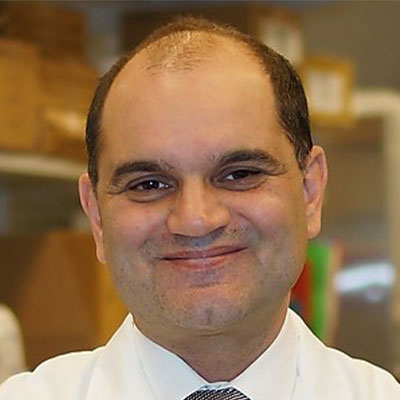
Robert Leone, M.D.
In addition to canonical activation and cytokine signaling, immune cell phenotype and function are exquisitely tuned to nutrient and metabolic conditions. In this regard, our previous work revealed that glutamine antagonism could markedly condition the differentiation of effector CD8 T cells, enhancing long-lived, memory-like phenotypes and improving intra-tumoral survival and proliferative capacity in mouse tumor models (Leone, et al., Science, 2019). Building on these observations, our lab is interested in elucidating specific molecular mechanisms of adaptive immune response to metabolic perturbations. Of particular interest are metabolically dependent mechanisms of T cell differentiation. Our approach includes assessment of transcription factor modulation, metabolic enzyme moonlighting, metabolically responsive enzymatic processes resulting in altered posttranslational modifications (e.g., methylation, acetylation), spliceosomal modulation, cellular stress response, as well as bioactive lipid signaling, and cancer/immune cell co-metabolism. This work requires integration of a broad range of techniques including high-dimensional flow cytometry, mass spectrometry (e.g., metabolomics, stable isotope tracing, multiple reaction monitoring), metabolic flux analyses, advanced proteomics, single-cell transcriptomics and epigenomics, CRISPR/Cas9 gene editing, microscopy, and metabolic imaging agents. We employ an extensive range of immunologic models in mice, in vitro studies, as well as patient samples. Our goal is to elucidate fundamental cellular processes activated in response to metabolic events that have broad implications for development of immune-based therapeutics.
